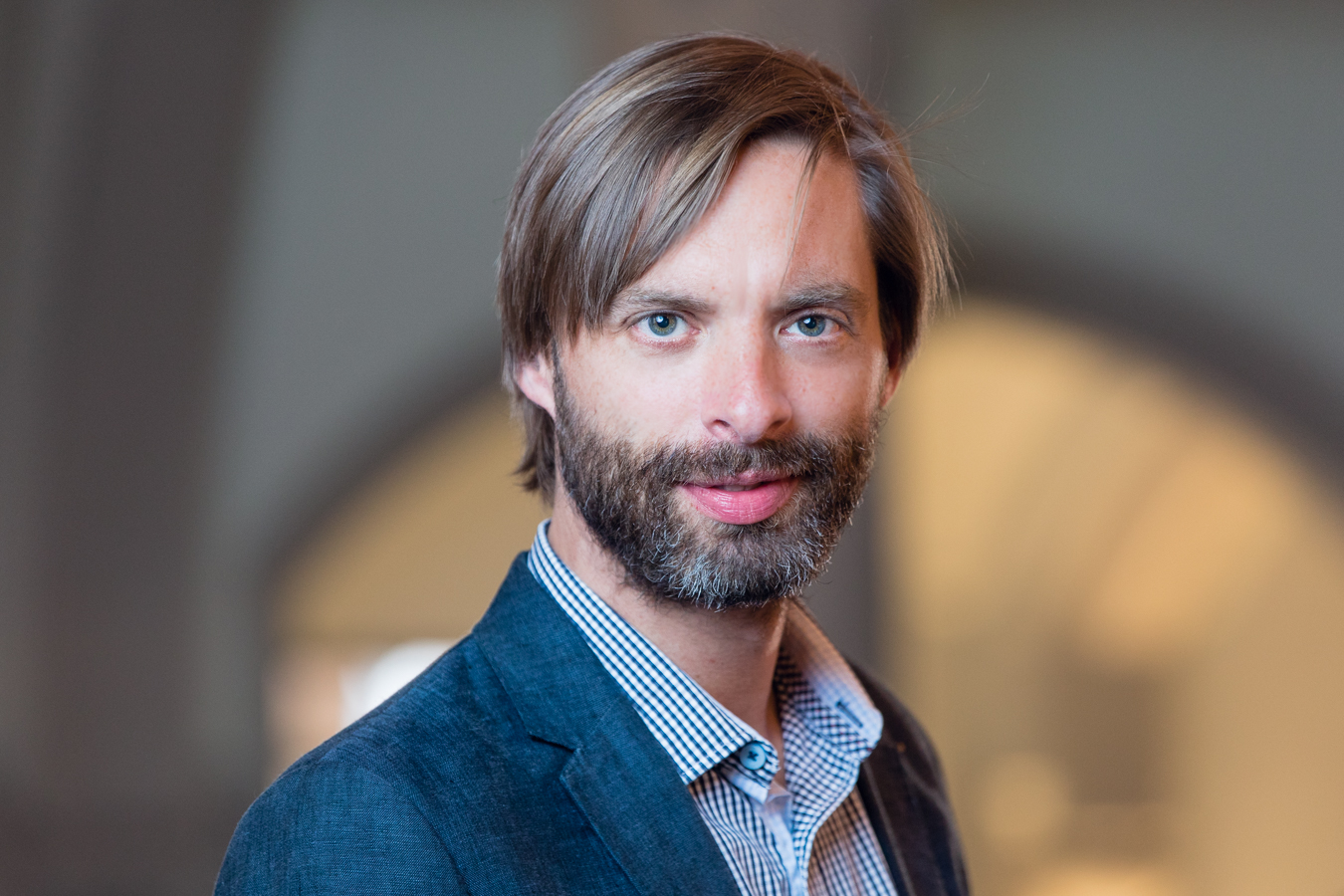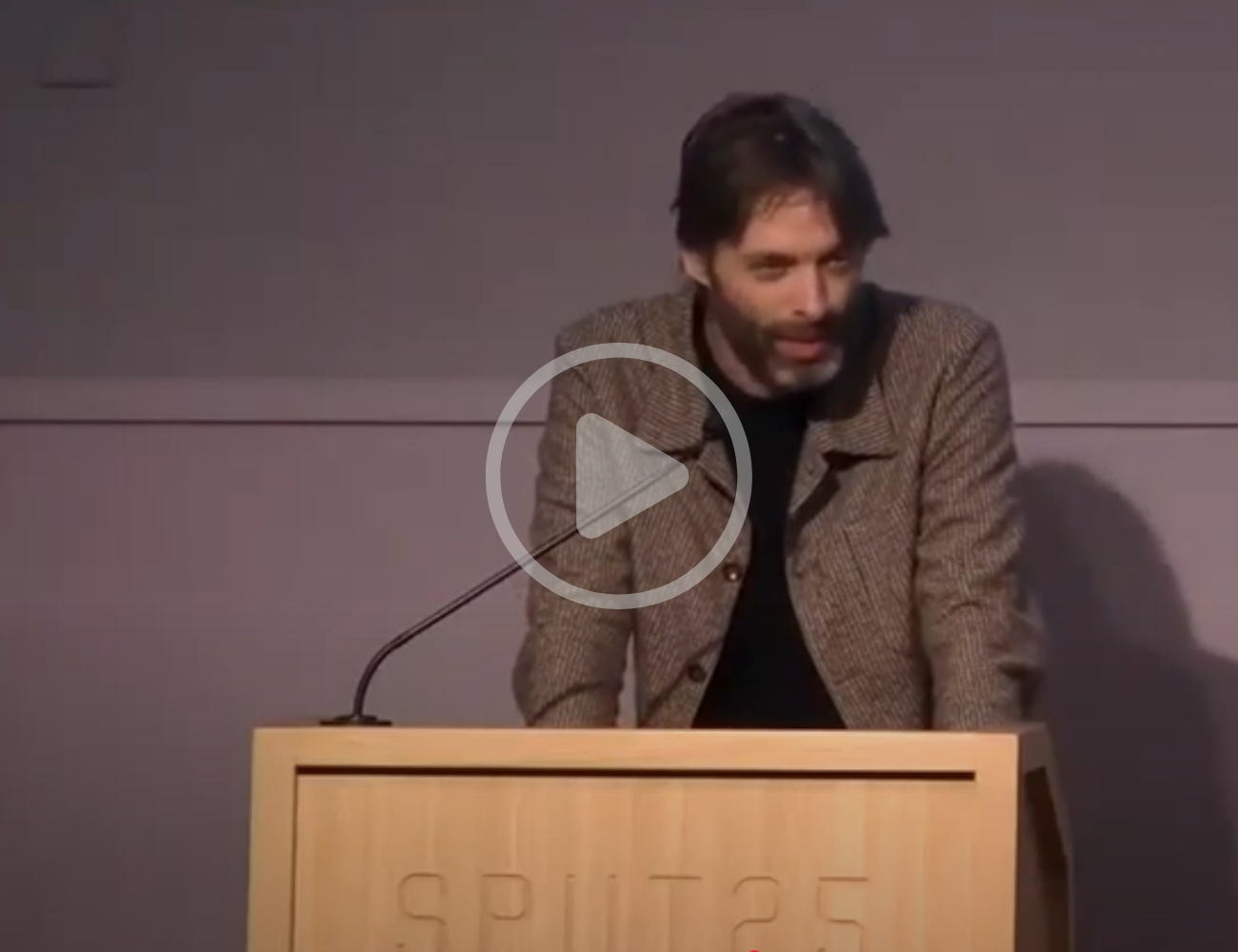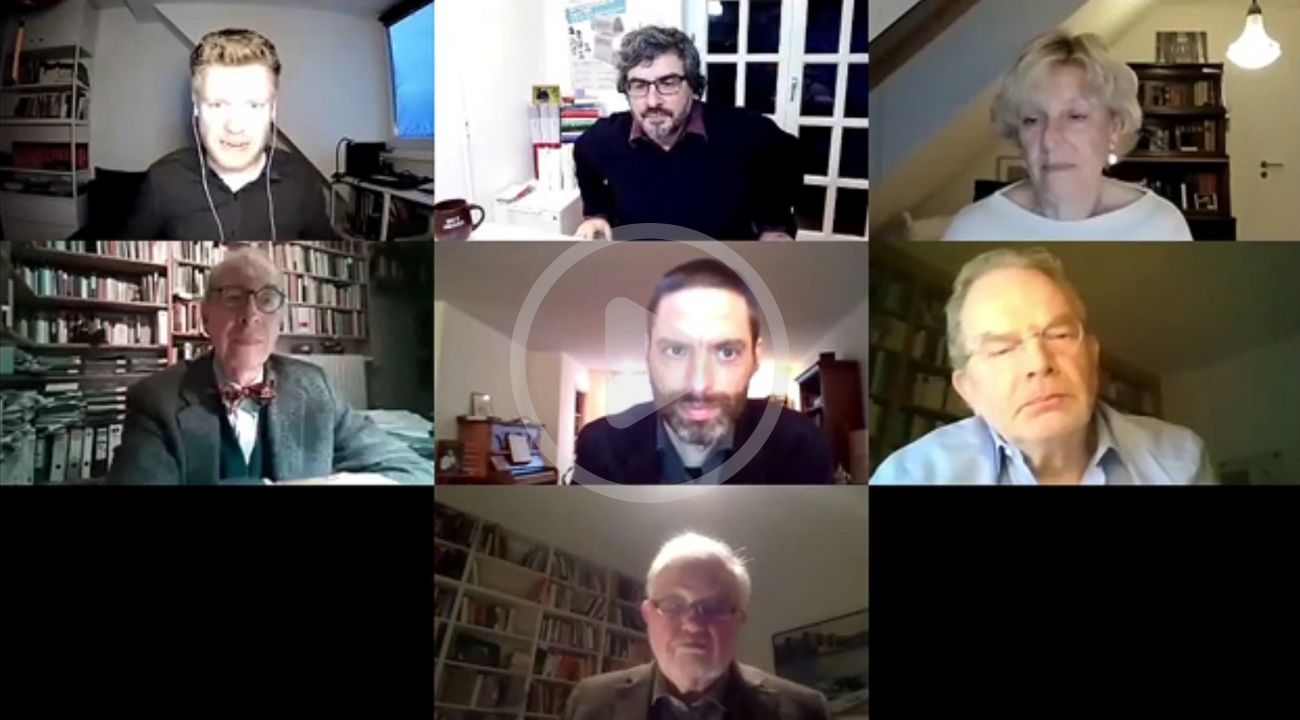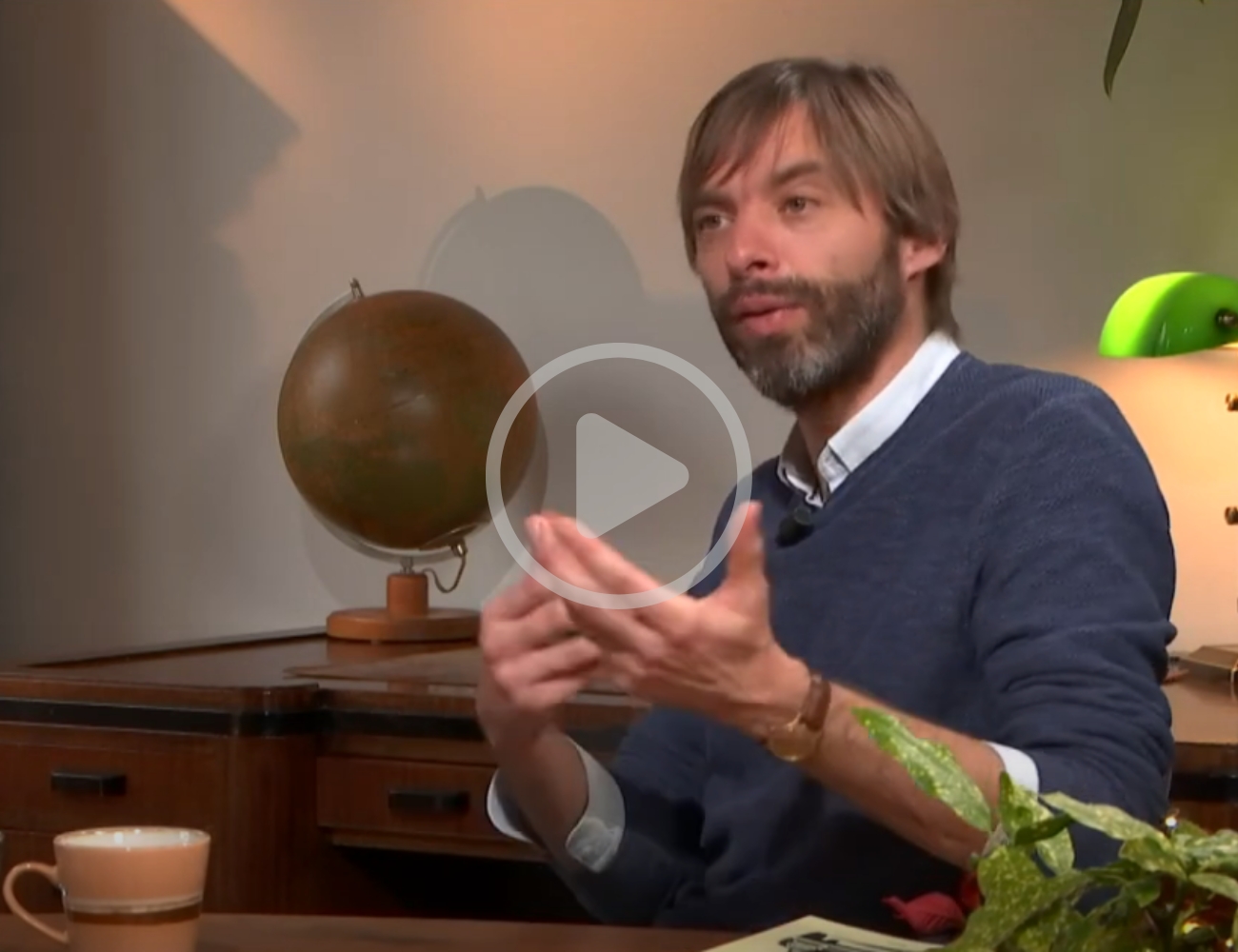Dr. Krijn Thijs
Wissenschaftlicher Mitarbeiter
Krijn Thijs (Amsterdam, 1976) is a historian and senior staff member at the Germany Institute Amsterdam at the University of Amsterdam. He studied history at the Free University Amsterdam and wrote his dissertation as a guest researcher at the Center for Contemporary History in Potsdam. In his dissertation, he compares Berlin narratives and the city’s anniversary celebrations in the Third Reich, the DDR and West-Berlin (Title: Drei Geschichten, eine Stadt. Die Berliner Stadtjubiläen von 1937 und 1987, Boehlau Verlag 2008). Thijs has been working at the Germany Institute Amsterdam since 2009. He coordinates the DAAD-Graduiertenkolleg, organizes workshops and lectures and teaches at the University of Amsterdam (History, German Studies). Thijs currently is coordinator of the MA German Studies at the UvA.
Thijs's research focuses on the modern history of Germany and the Netherlands, with a special interest in memory and historiography, transfer and conflict and in contemporary Berlin. His current work deals with the "transformation" of the East German history profession after 1989. In 2017, he received a research grant from the Gerda Henkel Stiftung for this project (“Geschichte in Revolution und Umbruch (1989-1994)”.
Thijs publishes in German, English and Dutch and was involved in a number of exhibition projects in Berlin over the past years, for example for the Humboldt-Forum (master plan “Berlin und die Welt”/Berlin Global). He recently compiled the volumes Probing the Limits of Representation. The Bystander in Holocaust History (Berghahn Books, 2018, 2020 Paperback, with Christina Morina) and Duitsland 1918-1991. Twintig vensters op een bewogen eeuw (Boom Publishers: Amsterdam 2021) [https://duitslandinstituut.nl/publicaties/duitsland-1918-1991-onderwijseditie], a special edition for educational use. Since 2022, he leads a NWO-consortium to develop an VR-app on GDR history for Dutch school teaching: "Pionieren in de DDR. Op zomerkamp in de Koude Oorlog."
Krijn Thijs regularly comments in Dutch media on developments in Berlin and Germany. Recently:
13 November 2025
Podcast Net Echt from the University of Amsterdam, about the film 'Das Leben der Anderen'
1 June 2025
Radio1, OVT, on German-Israëli relations and the war in Gaza
9 February 2025
Radio1, OVT, about Dresden bombing commemorations and right wing AfD narratives
30 November 2024
Radio1, Dr. Kelder en Co, on the publication of Angela Merkel's memoirs
Some past highlights:
October 3, 2015: Television broadcast 25 Years after German Reunification
November 9, 2014: Television broadcast 25 Years after the Opening of the Berlin Wall
August 25, 2012: Television News Report on Thijs' exhibition 'Party, Pomp und Propaganda'
Project I: “History in Revolution and Umbruch”
This project evolves around the classic question in historiography: How do personal experiences of historians affect their academic work? My research takes up this issue for the German Zeithistoriker in the year 1989/1990. I analyze for East and West Germany their personal and professional reactions to the Fall of the Wall and to German unification. This also concerns the merging of the two historiographies of FGR and GDR into the new Germany. At the center are the worries, hopes and emotional conflicts surrounding the evaluation and “Abwicklung” of East German historiography.
Grants
Forschungsstipendium Gerda Henkel Stiftung 2016-2018: “Geschichte in Revolution und Umbruch. Historikerbegegnungen, Lebenserfahrung und bedrohte Wissenschaftlichkeit (1989-1994)”
Leibniz Summer Fellowship 2015 am ZZF Potsdam
Publications
Op visitatie in Oost-Berlijn. Over het afwikkelen van geesteswetenschappen uit de DDR, in: Frans Lantink en Jeroen Koch (eds.), Nederlandse historici over Duitsland. Actualiteit en (dis)continutieit (AUP Amsterdam, 2025)
Entzweite Partner im vereinten Fach. Der Briefwechsel zwischen den Historikern Thomas Kuczynski und Rudolf Vierhaus (1989-1991), Jahrbuch deutsche Einheit 5 (2024), 239-288
Die ‚Ritter-Kommisson‘ und ihre Mitglieder. Asymmetrische Erneuerungspraktiken am Geschichtsinstitut der Humboldt-Universität, Die Hochschule. Journal für Wissenschaft und Bildung 33, 1/2024, 84-98. (PDF)
Vier Wege in das Aus der Einheit. Strategien ostdeutscher Institutsdirektoren gegenüber der Evaluation des Wissenschaftsrates (1990/91), Jahrbuch deutsche Einheit 2 (2021), 243-271.
Die Evaluierer aus dem Westen und der Schein der Routine. Zur Begutachtung durch den Wissenschaftsrat am Beispiel der historischen Akademie-Institute in Ost-Berlin, in: J. Blecher/J. John (Hrsg.), Hochschulumbau Ost. Die Transformation des DDR-Hochschulwesens nach 1989/90 in typologisch-vergleichender Perspektive (Stuttgart: Franz Steiner Verlag), 169-198.
Demokratie als Funktionsbedingung. (Zwischen-)Bilanz der Kontroverse um die ‚politische‘ Resolution des Historikerverbandes, in: Zeithistorische Forschungen/Studies in Contemporary History 16 (2019) 1, S. 154-163. (link)
Der Unabhängige Historiker-Verband und die Vereinigung der deutschen Geschichtswissenschaften 1990, in: Matthias Berg et. al, Die Versammelte Zunft. Historikerverband und Historikertage in Deutschland 1893-2000, deel 2 (Göttingen 2018), 653-680.
Gebrochene Geschichte. Lebenserfahrung und Historikerbegegnungen nach 1989, in: Franka Maubach und Christina Morina (Hrsg.), Das 20. Jahrhundert erzählen: Zeiterfahrung und Zeiterforschung im geteilten Deutschland (Göttingen: Wallstein 2016), 387-448. Recensie
The German connection. Over de relatie tussen West-Duitse historici en Nederlandse theoretici in de late twintigste eeuw, Tijdschrift voor Geschiedenis 129 (2016), 99-122. (themanummer ‘Geschiedfilosofie in Nederland 1860-2000’, gastredactie samen met Herman Paul en Jacques Bos)
Die Dreiecksbeziehungen der Fachhistoriker. Überlegungen über den Umbruch in der ostdeutschen Geschichtswissenschaft, Die Hochschule. Journal für Wissenschaft und Bildung 2015/1, 37-47. (PDF)
Zwartboek van een DDR-historicus (review on duitslandinstituut.nl)
The Metaphor of the Master. ‘Narrative Hierarchy’ in the National Historical Cultures of Europe, in: Stefan Berger en Chris Lorenz (red.), The Contested Nation. Ethnicity, Class, Religion and Gender in national Histories (Palgrave Macmillan: Houndmills, 2008), 60-74.
Der Untergang des historischen Herrschaftsdiskurses. Ost-Berliner Parteihistoriker zwischen Erosion und Kontinuität in der späten DDR, Comparativ 12 (2002), nr. 2, 86-113.
Project II: From a divided to the “new” Berlin
At the end of the Cold War, the division of Berlin seemed more stable than ever before. West Berlin went in search of new survival strategies and East Berlin felt itself the proud capital of the GDR. The shared 750th anniversary of 1987 presented two competing, but completely interrelated, city halves. Protests brewed on both sides of the Wall in the late 1980s, but no one saw the sudden “1989” coming. After The Fall of The Wall, everyone had to improvise, and the construction of the “New Berlin” in the 1990s realized many plans that originally had arisen in West Berlin in the 1980s. It led to an unexpected and complex mix of rupture and continuity, which has characterized the culture and cityscape of the German capital to this day.
Publications
Dem Friedhof kein Frieden? Demokratiegeschichte im örtlichen Deutungsgeflecht, in: Oliver Gaida, Hanno Hochmuth, Susanne Kitschun und Christoph Rauhut (Hgrs.), Friedhof der Märzgefallenen: Zum Ort der Revolution von 1848 in der DDR (Berlijn, 2024). 239-252.
Performing Berlin. The Rivalling 750th Anniversaries of 1987, in: Stefanie Eisenhuth, Konrad H .Jarausch and Scott H. Krause (eds.), Cold War Berlin. Confrontations, Cultures, Identities (London e.a.: I.B.Tauris 2021), 189-205.
Espacio para la historia de Berlín. Sobre el descubrimiento del concepto “lugar histórico” en los años ochenta, in: P. Feenstra/L. Verzero (eds.), Ciudades performativas. Prácticas artísticas y políticas de (des)memoria en Buenos Aires, Berlín y Madrid (Buenos Aires 2021), 109-131.
In de schaduw van de Muur. De halve waarheden van Oost- en West-Berlijn, in: K. Thijs (red.), Duitsland 1918-1991. Twintig vensters op een bewogen eeuw (Amsterdam: Boom Uitgevers, 2021), 167-176.
Niederländer auf dem Müggelsee. Wie eine Flotte niederländischer Segelschiffe die 750-Jahr-Feier sprengte, in: Jürgen Danyel (Hg.), Ost-Berlin. 30 Erkundungen (Berlin: Christoph Links, 2018)
Klopfzeichen und Feierkonkurrenz. Die 750-Jahr-Feier 1987 in Ost- und West-Berlin, in: Deutschland Archiv 2017 (Bonn 2018), 88-99. (Online)
Het ‚nieuwe Berlijn‘. De droom en de stad na 1989, in: Hanco Jürgens en Ton Nijhuis (Hg.), De vleugels van de adelaar (Amsterdam 2017), 29-48.
Berlin und die Welt. Konzept der Ausstellung des Landes Berlin im Humboldt Forum (Kulturprojekte Berlin 2016), met versch. auteurs. (Online)
West-Berliner Visionen für eine neue Mitte. Die IBA, der ‚zentrale Bereich’ und die ‚Geschichtslandschaft’ an der Mauer (1981-1985), in: Zeithistorische Forschungen/Studies in Contemporary History 10 (2014), 2, 235-261. (Online)
Open Air Tentoonstelling “Party, Pomp und Propaganda” (Berlijn, An der Marienkirche, 24 augustus t/m 28 oktober 2012, Kulturprojekte Berlin) [Tagesspiegel-artikel Krijn Thijs; Recensie tentoonstelling; NOS-journaal 25-08-2012, vanaf minuut 12.30]
Party, Pomp und Propaganda. Die Berliner Stadtjubiläen 1937 und 1987 (Berlijn: Nicolai 2012)
Entfernter Erfahrungsraum. Überlegungen zu West-Berlin und 1989, Eurostudia.
Revue transatlantique de recherche sur l’Europe 7 (2011) 1-2, 29-46. (Online)
Drei Geschichten, eine Stadt. Die Berliner Stadtjubiläen 1937 und 1987 (Keulen, Weimar en Wenen: Boehlau 2008) (Online)
Project III: Conflict and transfer between Germany and the Netherlands
The processing of war violence and genocide continues to lead to public and professional controversies, both in Germany and in the Netherlands. Dealing with wartime legacies after 1945 also keeps informing dialogues between the two societies, which at times leads to significant misunderstandings, at other times to fruitful exchanges – also within shifting European frameworks. My research assumes that conflict and transfer are intertwined in a complex way. This led to publications about the figure of the 'bystander' in European remembrance cultures and about the figure of the Wehrmacht soldier in the occupied Netherlands.
Publications, conferences
Het (over)heidsgewicht van de nationale herinnering, WO2 Onderzoek Uitgelicht 2024/4
‘Herdenken in Duitsland’, in: NC Magazinie voorjaar 2020, 70-71.
Probing the Limits of Categorization. The ‘Bystander’ in Holocaust History (New York: Berghahn Books, 2019), red. met Christina Morina.
Ordinary, ignorant and noninvolved? The Figure of the Bystander in Dutch Research and Controversy, in: Christina Morina and Krijn Thijs (eds.), Probing the Limits of Categorization. The Bystander in Holocaust History (New York, 2019), 247-265.
Een verloren postzak uit Vorden. Duitse soldatenbrieven van eind maart 1945, in: Bijdragen en Mededelingen Gelre 108 (2017), 195-226.
Dealing with the enemy. Occupation and Occupied Societies in Western Europe. Introduction, in: Francia 2017, 349-358, with Tatjana Tönsmeyer.
Conferentie "Probing the Limits of Categorization. The ‘Bystander’ in Holocaust History", DIA Amsterdam 2015.
Duitse veldpostbrieven uit ‘Holland’. Hypothesen en bronnen over de ervaringen van Wehrmachtsoldaten, in: Tijdschrift voor Geschiedenis 127 (2014), 3, 415-437.
Workshop “Alltag am Atlantikwall. Erfahrungen und Begegnungen der Wehrmacht in Nordwesteuropa“ (Amsterdam, Juni 2013), ondersteund door de Fritz Thyssen Stiftung. Tagungsbericht; Verslag Duitslandweb
‚Die müssen ein bisschen aufgemöbelt werden, die Holländer.‘ Deutsche Feldpostbriefe aus den besetzten Niederlanden – eine Annäherung, in: K. Thijs/R. Haude (red.), Grenzfälle. Transfer und Konflikt zwischen Deutschland, Belgien und den Niederlanden im 20. Jahrhundert (Synchron: Heidelberg, 2013) 85-10.
Grenzfälle. Transfer und Konflikt zwischen Deutschland, Belgien und den Niederlanden im 20. Jahrhundert, red. met Rüdiger Haude (Heidelberg: Synchron 2013). [=Amsterdam German Studies 4]
Niederlande – schwarz, weiß, grau. Zeithistorische Debatten seit 2000, in: Docupedia-Zeitgeschichte, 03.06.2011. (Online)
Holland and the German Point of View. On the Dutch Reactions to German Victimhood, in: H. Schmitz/A. Seidel Arpaci (red.), Trauma, Victims and Collective Memory: Discourses of German Wartime Suffering in Historical and International Perspective (Amsterdam en New York 2011), 181-200.
Soldaten, Sileziërs en andere onschuldigen. Vier conflicten uit het herinneringsjaar 1985, in: P. Dassen/T. Nijhuis/K. Thijs (red.), Duitsers als slachtoffers. Einde van een taboe? (Amsterdam, 2007), 337-387.
Selection:
17 januari 2024
Column op het symposium "Nederland en de herinnering aan de jodenvervolging" in Spui25, ter lancering van het gelijknamige boek van Frank van Vree. Hier online terug te zien.
17 februari 2021
'Zwischen Katerstimmung und Neuorientierung: Der VHD und die Vereinigung der deutschen Geschichtswissenschaften in den 1990er Jahren'. Panelgespräch des Verbands der Historiker und HistorikerInnen Deutschlands, mit Jürgen Kocka, Martin Sabrow, Stefan Wolle und Eva Schlothuber. Zoom (wegen Covid), also: Online
24 december 2020
'Grote lijnen van de Duitse geschiedenis. Een gesprek met Krijn Thijs'. Naar aanleiding van de publicatie van de bundel "Duitsland 1918-1991", georganiseerd door De Nieuwe Wereld. Online
Full list of publications [PDF], see also my profile at UvA website.
Selection:
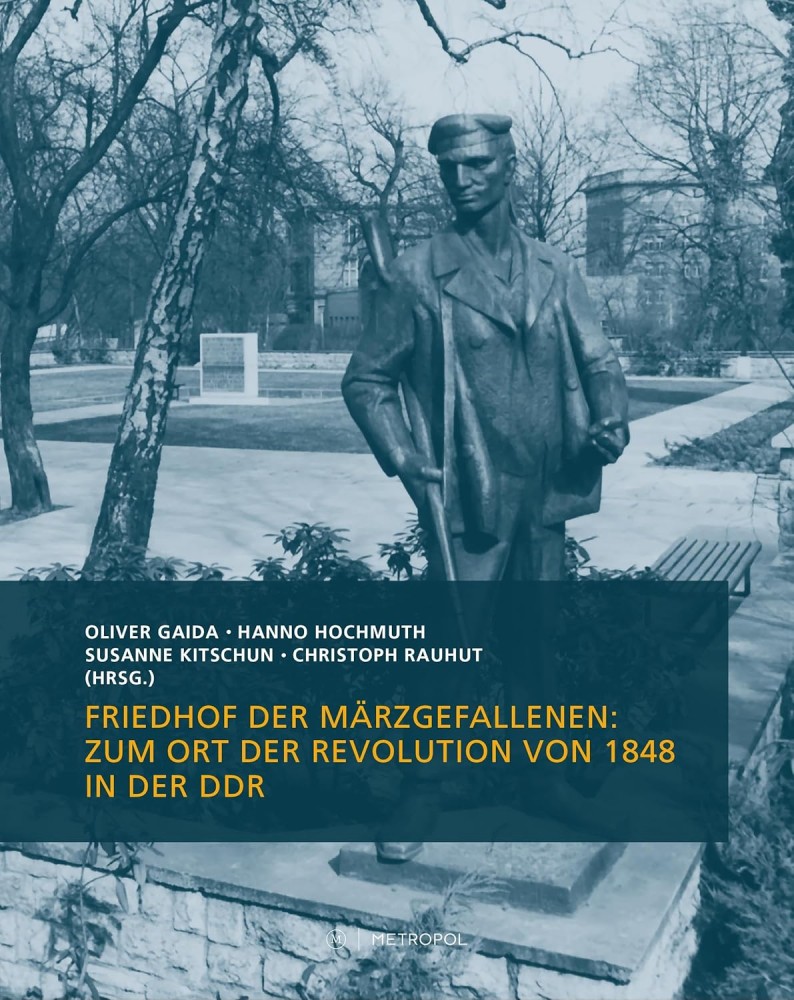
Dem Friedhof kein Frieden? Demokratiegeschichte im örtlichen Deutungsgeflecht, in: Oliver Gaida, Hanno Hochmuth, Susanne Kitschun und Christoph Rauhut (Hgrs.), Friedhof der Märzgefallenen: Zum Ort der Revolution von 1848 in der DDR (Berlijn: Metropol, 2024), 239-252.
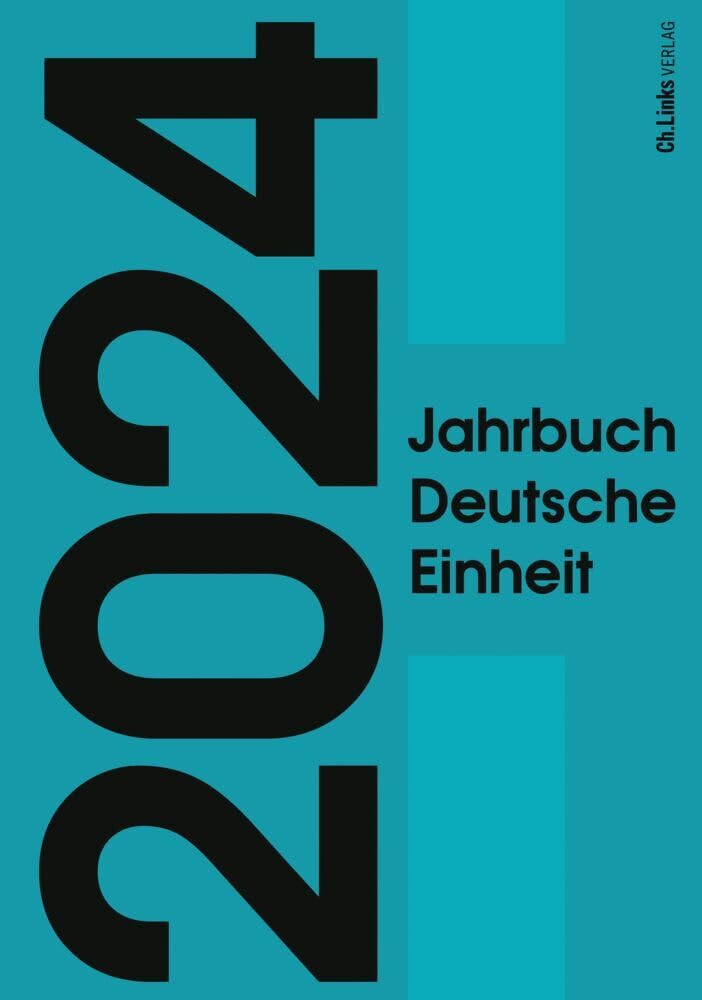
Entzweite Partner im vereinten Fach. Der Briefwechsel zwischen den Historikern Thomas Kuczynski und Rudolf Vierhaus (1989-1991), Jahrbuch deutsche Einheit 5 (2024), 239-288
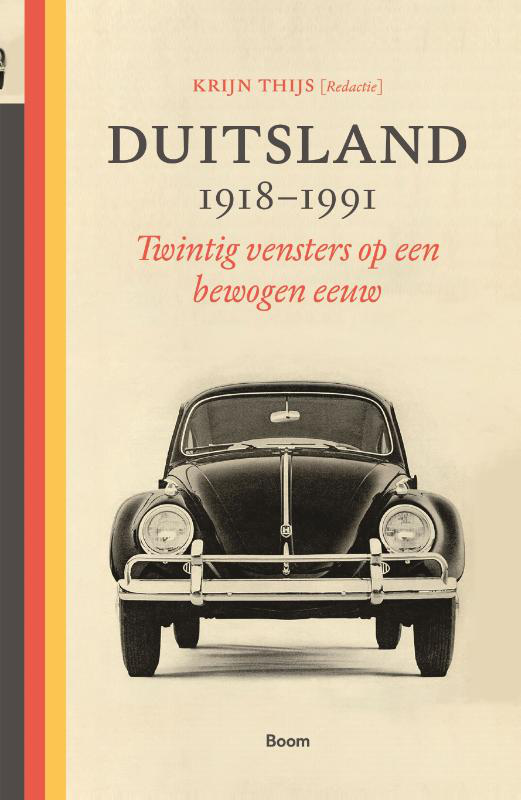
Duitsland 1918-1991. Twintig vensters op een bewogen eeuw (Amsterdam: Boom 2021), 240p, redactie.
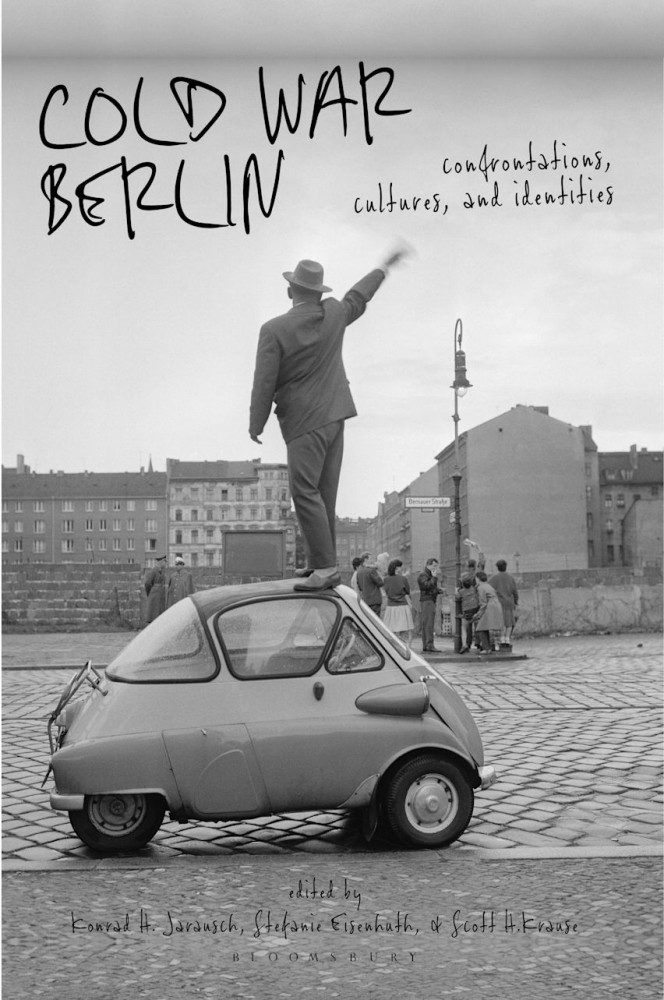
Performing Berlin. The Rivalling 750th Anniversaries of 1987, in: Stefanie Eisenhuth, Konrad H. Jarausch and Scott H. Krause (eds.), Cold War Berlin. Confrontations, Cultures, Identities (London: I.B.Tauris 2021), 189-205.
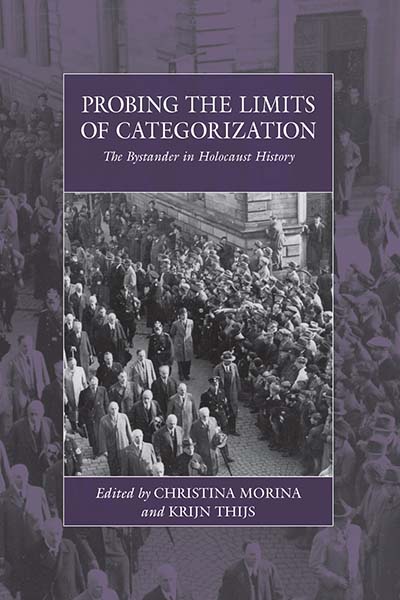
Probing the Limits of Categorization. The ‘Bystander’ in Holocaust History (New York: Berghahn Books, Hardcover 2019; Paperback 2020), redactie met Christina Morina
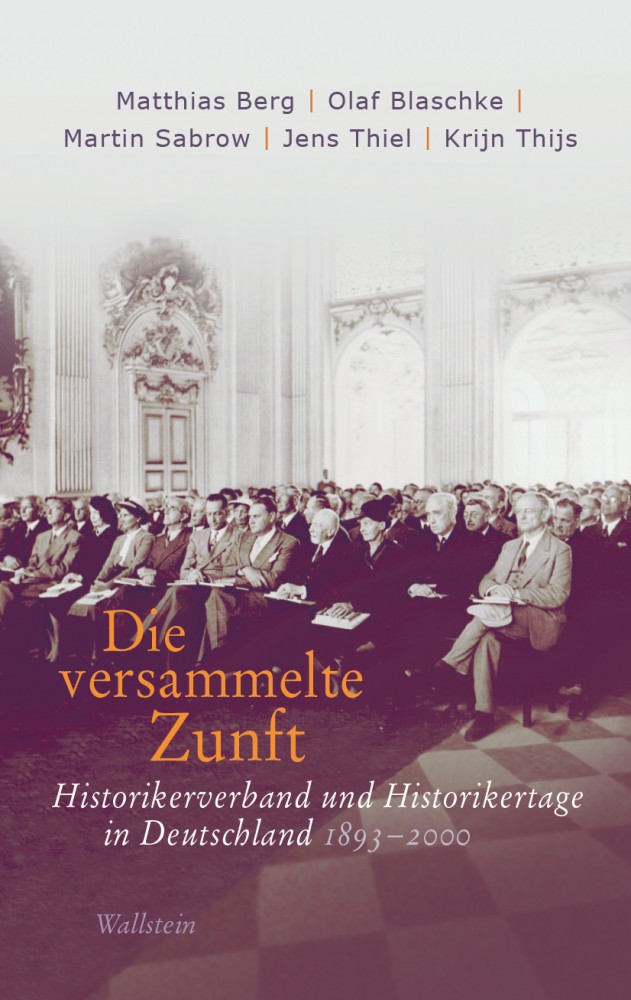
Die versammelte Zunft. Historikerverband und Historikertage in Deutschland 1893-2000, 2 delen (Göttingen: Wallstein 2018), met Matthias Berg, Olaf Blaschke, Jens Thiel en Martin Sabrow.
DIA leest: 'Der nasse Fisch'
Boeken - 1 Oktober 2019 - Autor: Krijn Thijs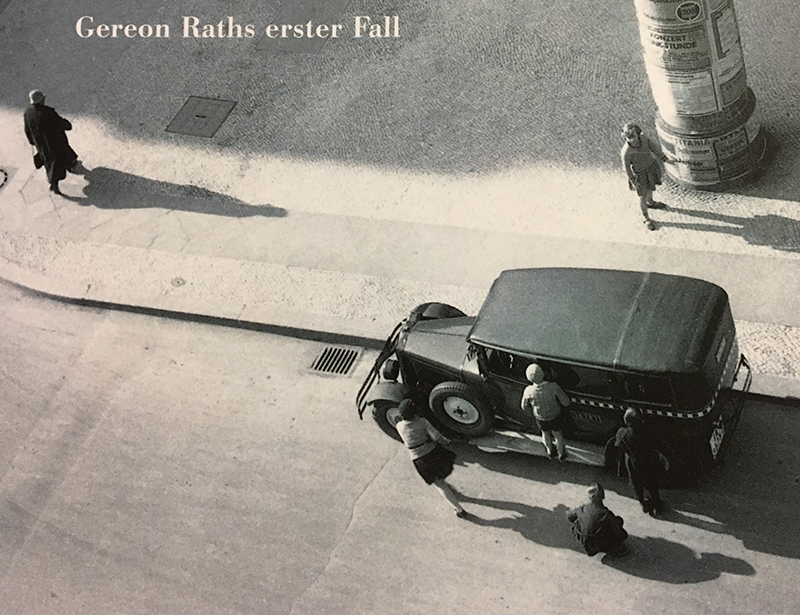
Mehr
Touwtrekken om DDR-tapes
Columns - 19 Februar 2019 - Autor: Krijn Thijs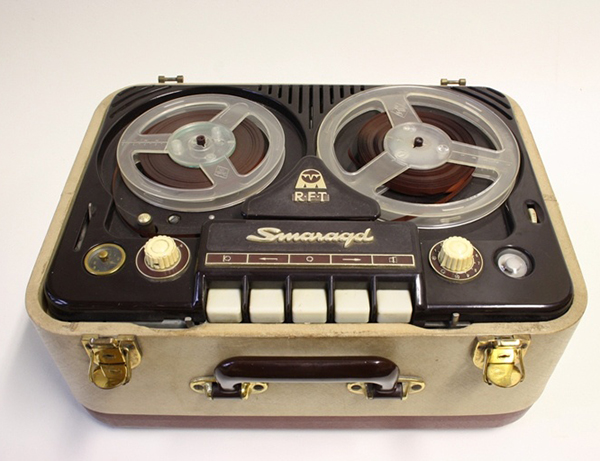
Mehr
Berlijn in drie nieuwe boeken
Boeken - 22 Juni 2015 - Autor: Krijn Thijs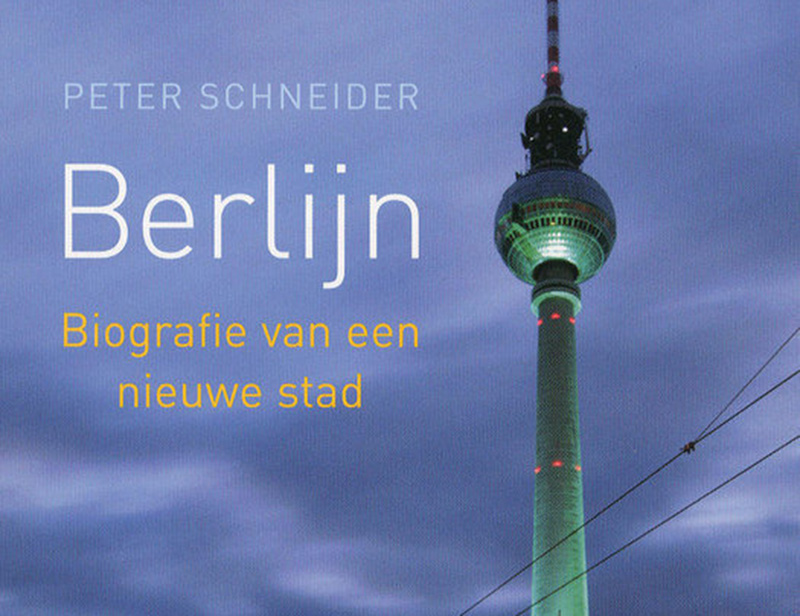
Mehr
Met de Muurbrekers over de Spree
Achtergrond - 4 September 2014 - Autor: Krijn Thijs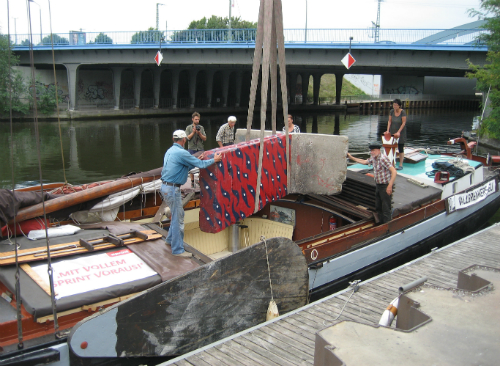
Mehr
DIA leest: Zwartboek van een DDR-historicus
Boeken - 29 Oktober 2013 - Autor: Krijn Thijs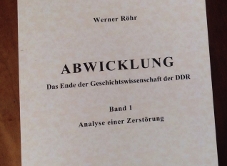
Mehr
De constructie van de volkskunde
Boeken - 25 Januar 2006 - Autor: Krijn ThijsMehr

